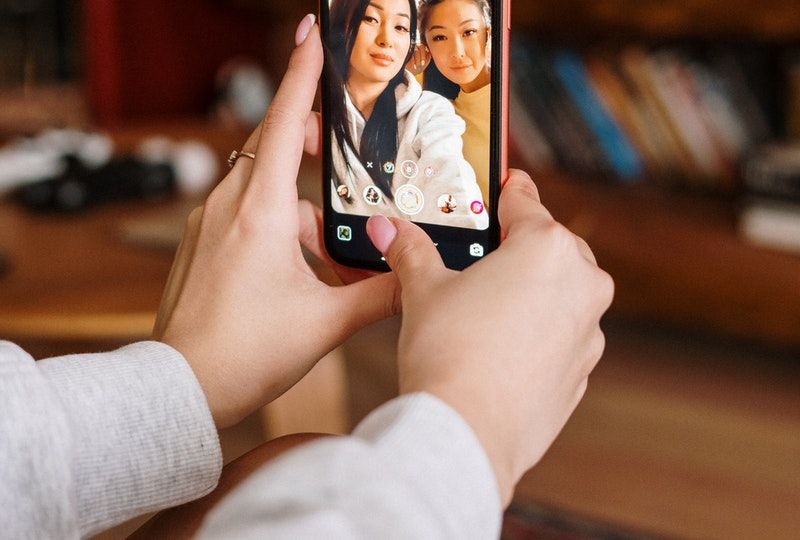Top 10 Japanese Slang Words You Won’t Learn in Japanese Language Class

Your classroom Japanese lessons might not teach you Japanese slang, but that doesn’t mean casual speech isn’t important to your progress as you study Japanese. Let’s say, for example, that you’re relaxing with friends when you decide you want to see a movie. How would you ask the group if they wanted to go with you? Would you rather say, “Would you like to see a movie with me this evening?” or something like, “Wanna go to a movie tonight?”
Let’s be honest; you’d use the second sentence, right? In fact, if you used the first sentence, your friends might interpret the tone of the question as if you didn’t really want them to go to the movie. We simply don’t speak the same way to everyone, and the first sentence sounds stilted and unnatural in the casual setting. You don’t use the same level of conversation with your friends as you do your boss, and Japanese slang helps you to acclimate to every situation, even if it's not often included in Japanese lessons.
You’ve probably already learned as you study Japanese (whether in a classroom or through online learning tools like Speechling) how highly attuned the Japanese culture is to politeness and deference. You must know when it is appropriate and when it isn’t, but that’s not too different from any language, and it can greatly enrich your language skills.

Japanese Slang Phrases
First, let’s make sure we are using the term “slang” in the same way. Think about slang as if it’s a secret language you share with trusted friends and family members. From that perspective, slang in any language does serve a purpose. We use it with those we’re comfortable with, especially in social situations. It pegs a person on a hierarchy of closeness and familiarity.
Native speakers of Japanese use slang a lot in appropriate settings. It takes high proficiency in the study of the Japanese language to communicate just as well in casual settings as in more formal situations. If you want to sound like a native speaker, here are two categories of Japanese slang phrases to have in your vocabulary toolbox.

Top 10 Japanese Slang Phrases
Remember that Japanese slang actually refers to casual language. It’s important to keep in mind that these phrases can be used with those you interact with in a very casual way. They would not be appropriate in an email with business associates. As in all things Japanese, your first concern as you study the language is to first look at the relationship of the person you are interacting with and what level of deference will be expected.
Slang is fun to use with your friends and shows a new level of understanding the language, but use it carefully in any other setting! Plus, there are significant differences in terms used regionally within Japan, so traveling may pose a challenge. With that in mind, here are some of the more familiar Japanese slang terms to know.
-
よー (yo) = Hey
Not too different from what English speakers say to friends as a greeting, right? Just don't use it with strangers, since it's a bit too abrupt and would be considered impolite. -
やばい (yabai) = Terrible, ridiculous, crappy; amazing, awesome.
This phrase is used all over Japan and is common in everyday language. A friend may use it to tell you that a situation is really good. Or it might mean things are bad, really bad, depending on the context of the situation. In Japanese among males, it is sometimes shortened to ヤバ (yaba). -
ウザい (uzai) = Annoyingly noisy; a gloomy personality
うるさい (urusai) means noisy to the point of irritation. The shortened version, ウザイ, to describe that friend that who finds the negative in everything. The meaning becomes stronger when shortened and becomes the equivalent of “what a pain” or even “pain in the butt.” In general, the speaker is expressing frustration with a situation or a person. It’s a very common phrase, also, on the internet. -
おっす!(ossu) = What’s up?
This one started out as a military greeting, so it was more formal than today’s use. If you really want to surprise your Japanese friends, greet them with this modern version. A more conservative way of saying it would be こんちはー (konchiwa), a contraction of こんにちは (konnichiwa), or good day or good night. -
またねー!(matane) = Later!
This one, meaning “see you later,” has a few options: またねー and じゃーね (jya-ne) are the most common. あばよ is how a macho personality says “later.” The よ suffix basically means, “I’m certain,” so be confident before you use it. You want to be taken seriously, even if you are using Japanese slang. -
一杯どう? (いっぱい どう)? (ippai do) = How about a drink?
Used among friends to ask if people want to get a drink. If you want to have another drink afterwards, it’s もう一杯どう? (もう いっぱい どう?) (mo ippai do), which is basically, “How about another round?” -
お腹減ったな (おなかへったな) (onaka hettana) = I’m Hungry
お腹減ったなー is like saying, “I’m famished.” お腹がゴロゴロ言ってる (おなかが ごろごろいってる) (onakaga gorogoro itteru) means “my stomach is growling.” The onomatopoeia ゴロゴロ (gorogoro) means “grumbling.” Many anime personalities simply ask for food by using the word for stomach: 腹 (はら). -
リア充 (riajuu) = Real world inhabitant (no good translation)
This describes people who don’t need an online persona to enjoy their lives without a digital presence. リア充 is a combination of two words. The first is the English term “real world” turned into the katatana リアルワールド (riaru warudo) and then contracted to simply リア (ria). The second is a contraction of “satisfied,” 充実 (juujitsu). Its opposite would be オタク (otaku), which refers to a someone who is dependent on their online persona for their enjoyment of life. Since there isn’t a good English version of リア充, this one will surprise your Japanese friends for sure. -
ずるい (zurui) = No fair!
This one is a combination of disgust and admiration for somebody’s behavior that is a bit sneaky. You would use it when you can’t believe they actually went through with it, but you might be impressed with their audacity. Or you can let someone know what they did was over the line. -
それな!(sore na!) = That!
This is used when you agree with something someone said. In other words, you were thinking the same thing and are on board with what they said.

Bonus Japanese Slang
We can’t leave a discussion of Japanese slang without looking at a few other common phrases you may hear as you make Japanese friends or use study tools like Speechling to expand your command of Japanese.
- 調子どう? (choushi dou?) = “How are you?” or “How’s it going?”
- 一だす一は? (Ichi dasu ichi wa?) = “One plus one equals?” For some reason, it’s used for “Say cheese!” when taking a picture. The response is “に!” (*Ni!”) in Japanese.
- 誰得 (daretoku) = “Who gets something from this?” or “Why do this?” It’s used like the internet slang, “Y tho?” in English.
- 相変わらず (aikawarazu) = “Same as usual” or “Same as ever.” It’s like saying “so-so” when someone asks how you’re doing.
- わりいーね (warii-ne) = “My bad.” You can say this instead of ごめん (gomen).

Time to Get Casual With Your New Japanese Slang!
The best rule in learning Japanese slang is to use it sparingly at first, simply so you are not unintentionally offending others. You won’t find a class on Japanese slang and it’s hard to teach without a foundation of the language already established. As you progress in your understanding of the basics and then feel more comfortable speaking Japanese in social situations, you will begin to learn slang terms and words as they are used among your peers, family, and friends. You can use Speechling's Freestyle Mode to ensure that you're pronouncing and using these terms correctly (learn more about this on our "how to study" page). Those around you will appreciate your dedication to the language, and you’ll sound more like a native too!
